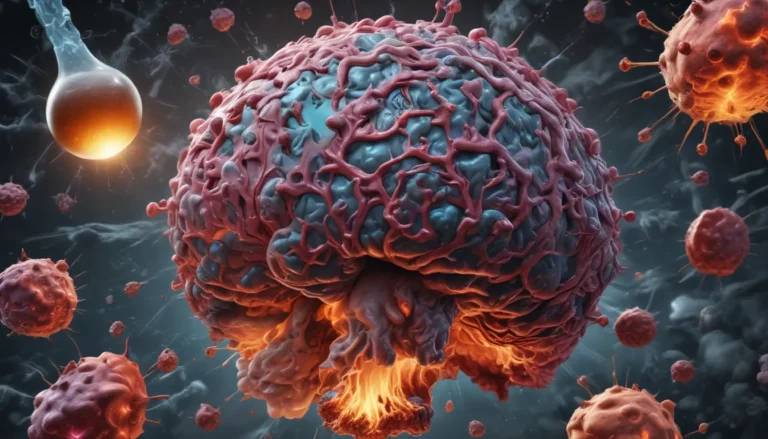A Note About Images: The images used in our articles are for illustration purposes only and may not exactly match the content. They are meant to engage readers, but the text should be relied upon for accurate information.
Pandemics have stood as a riveting subject that intrigues scientific minds, historians, and the general populace. These global outbreaks of infectious diseases have left an indelible mark on human history, bringing about significant disruptions, loss of life, and societal transformations.
In this comprehensive article, we will dive into the captivating realm of pandemics and uncover 18 intriguing facts that shed light on their origins, impacts, and consequences. From understanding the historical context to exploring the scientific intricacies, each fact will provide valuable insights that deepen our comprehension of these devastating events.
So, let’s embark on a journey through the enigmatic world of pandemics, unraveling the mysteries that make them a compelling topic of study.
The Global Impact of Pandemics
- Pandemics, such as COVID-19, are worldwide outbreaks of communicable diseases that can have far-reaching social, economic, and political repercussions, affecting populations across the globe.
- Vaccines, awareness, and early detection play a crucial role in combating pandemics, driving advancements in medical research and technology throughout history.
Decoding the Nature of Pandemics
What is a Pandemic?
A pandemic signifies a global occurrence of an infectious disease that spreads across various countries and continents, impacting a large number of individuals.
The Spanish Flu and the Black Death
- The Spanish Flu pandemic of 1918 infected approximately one-third of the world’s population, resulting in an estimated 50 million deaths globally.
- The Black Death pandemic in the 14th century decimated nearly 50% of Europe’s population, caused by the bacterium Yersinia pestis spread through fleas on rats.
Societal, Economic, and Political Ramifications
Pandemics have profound social, economic, and political ramifications, disrupting economies, straining healthcare systems, and fostering social unrest with enduring effects.
The HIV/AIDS Pandemic
- The HIV/AIDS pandemic has claimed the lives of over 32 million people since its identification in the 1980s, with ongoing efforts to prevent and find a cure for the disease.
- Heightened awareness, preparedness, and early detection are essential in mitigating pandemic effects.
Studying Pandemics: Lessons and Insights
The Role of the World Health Organization (WHO)
The WHO plays a vital role in monitoring and responding to pandemics, providing guidance, coordinating international efforts, and working toward preventing disease spread globally.
Mental Health and Pandemics
Pandemics can have lasting effects on mental health, inducing fear, anxiety, and grief that impact individuals’ well-being, contributing to increased rates of depression and anxiety disorders.
The Importance of Vaccination
Vaccines play a pivotal role in preventing and controlling pandemics by building immunity and reducing disease spread, potentially saving millions of lives.
Incident of Animal-to-Human Transmission
Pandemics can arise through animal-to-human transmission, such as zoonotic diseases like COVID-19 and Ebola, leading to disease spread among human populations.
The Fastest-Spreading Pandemic: H1N1 Influenza
The 2009 H1N1 influenza pandemic holds the distinction of being the fastest-spreading in history, reaching over 200 countries within months and affecting millions globally.
Navigating Through Pandemics: Strategies and Responses
Travel Restrictions and Quarantine Measures
During pandemics, travel restrictions and quarantine measures are often implemented to limit the movement of infected individuals and prevent further disease spread.
The Fight Against COVID-19
- The COVID-19 pandemic spurred an unprecedented global effort to develop and distribute vaccines at an accelerated pace, showcasing scientific innovation and collaboration.
- Governments play a pivotal role in managing pandemics by implementing public health measures, coordinating healthcare systems, and providing accurate information to the public.
The Legacy of Vaccine Development
The 18th-century smallpox pandemic led to the development of the first successful vaccine by Edward Jenner, revolutionizing immunization practices and aiding in the eradication of smallpox worldwide.
Understanding the Enigmatic Nature of Pandemics
In conclusion, pandemics have left an enduring impact on human history, shaping various aspects of societal structures and healthcare systems. While they bring devastation and loss, pandemics also drive scientific advancements, improved healthcare practices, and global cooperation.
Studying past pandemics offers valuable lessons on the importance of public health measures, early detection, and swift response in preparing for future outbreaks. By investing in research, developing effective vaccines, and strengthening healthcare infrastructure, we can better mitigate the impacts of future pandemics.
Frequently Asked Questions
- What defines a pandemic?
-
A pandemic refers to the global spread of a new infectious disease affecting a large number of individuals across different regions.
-
How do pandemics originate?
-
Pandemics typically emerge when a novel pathogen arises and spreads through human-to-human transmission, often originating from animal hosts.
-
What are common pandemic symptoms?
-
Symptoms can vary but often include fever, cough, difficulty breathing, body aches, and fatigue, depending on the disease.
-
How can we curb pandemic spread?
-
Practicing good hygiene, maintaining social distancing, wearing masks, and getting vaccinated are vital preventive measures.
-
What is the government’s role during pandemics?
- Governments play a critical role in managing pandemics by implementing public health measures, coordinating healthcare systems, and providing accurate information to the public.
Conclusion: Learning and Growing From Pandemic Insights
Pandemics have stood as transformative events in human history, highlighting both the destructive potential and the capacity for innovation in response. By delving into the intricacies of past pandemics, we can better equip ourselves for future challenges, emphasizing the importance of global collaboration, technological advancements, and public health preparedness.
In the pursuit of knowledge and understanding, we can navigate through the enigmatic landscape of pandemics with resilience and a steadfast commitment to safeguarding our global community’s well-being. Each fact uncovered, each lesson learned, propels us forward on a path of continued growth and readiness in the face of unforeseen events.
With a spirit of curiosity and a dedication to shared progress, we can unravel the mysteries of pandemics, drawing strength from history to shape a brighter, more resilient future for generations to come.





